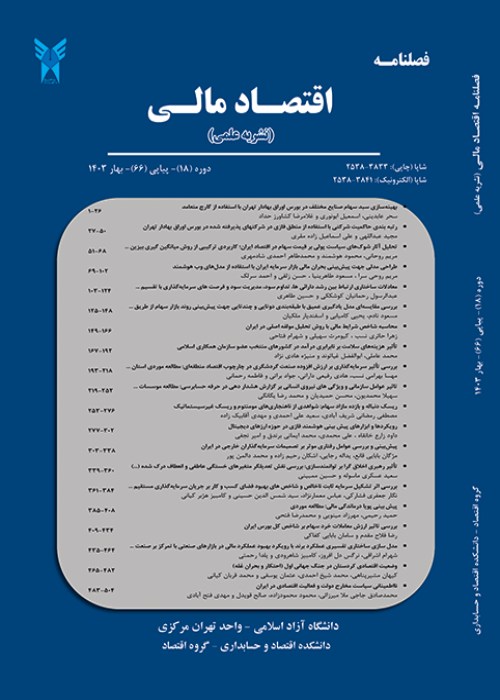The Impact of Macroeconomic, Financial, Economic and Economic Crisis Indicators on Trade Cycles of Iran and Selected Islamic and Developed Developing Countries
The present study uses the Generalized System Torque Model (SGMM) and dynamic panel data (PANEL VAR) to investigate the impact of macroeconomic, financial, economic and economic crises on business cycles of selected developing and developed countries over time. 2013-2019, 1392-1398. In this paper, the effect of independent variables (liquidity risk, return on assets, capital adequacy ratio, etc.) on business cycles in selected countries through the output gap variable using the Hadrick Prescott filter is used to evaluate the results of the model. Liquidity risk, lending facility growth rates and financial crises have a negative impact on the output gap, while return on assets, capital adequacy ratio, crude oil prices, exchange rates and the development of financial markets have a negative impact on periods. Have left the trade of selected countries.The results of the study of the reactions of instantaneous reaction (IRF) and analysis of variance for developed countries show that a standard deviation in terms of oil price index and exchange rate on the output gap, these variables show a decrease of up to two periods. Increased development of financial markets and banking health has continued, after 2 periods of shock effect of oil prices and exchange rates over time on the output gap of developed countries will be minimized.Also for developing countries; a standard deviation from The area of oil price index and exchange rate on the output gap, these variables have increased up to two periods and after 4 periods, has decreased, in other words, the effect of oil prices on the production of developing countries shows that in periods Rising oil prices, investment and production have increased, and conversely, when oil revenues fall, we see a decline in production, in other words, rising oil revenues are largely unmanaged, in other words, long-term investments are spent on short-term expenditures. It has resulted in nothing but inflation and increased liquidity for these countries.
- حق عضویت دریافتی صرف حمایت از نشریات عضو و نگهداری، تکمیل و توسعه مگیران میشود.
- پرداخت حق اشتراک و دانلود مقالات اجازه بازنشر آن در سایر رسانههای چاپی و دیجیتال را به کاربر نمیدهد.



